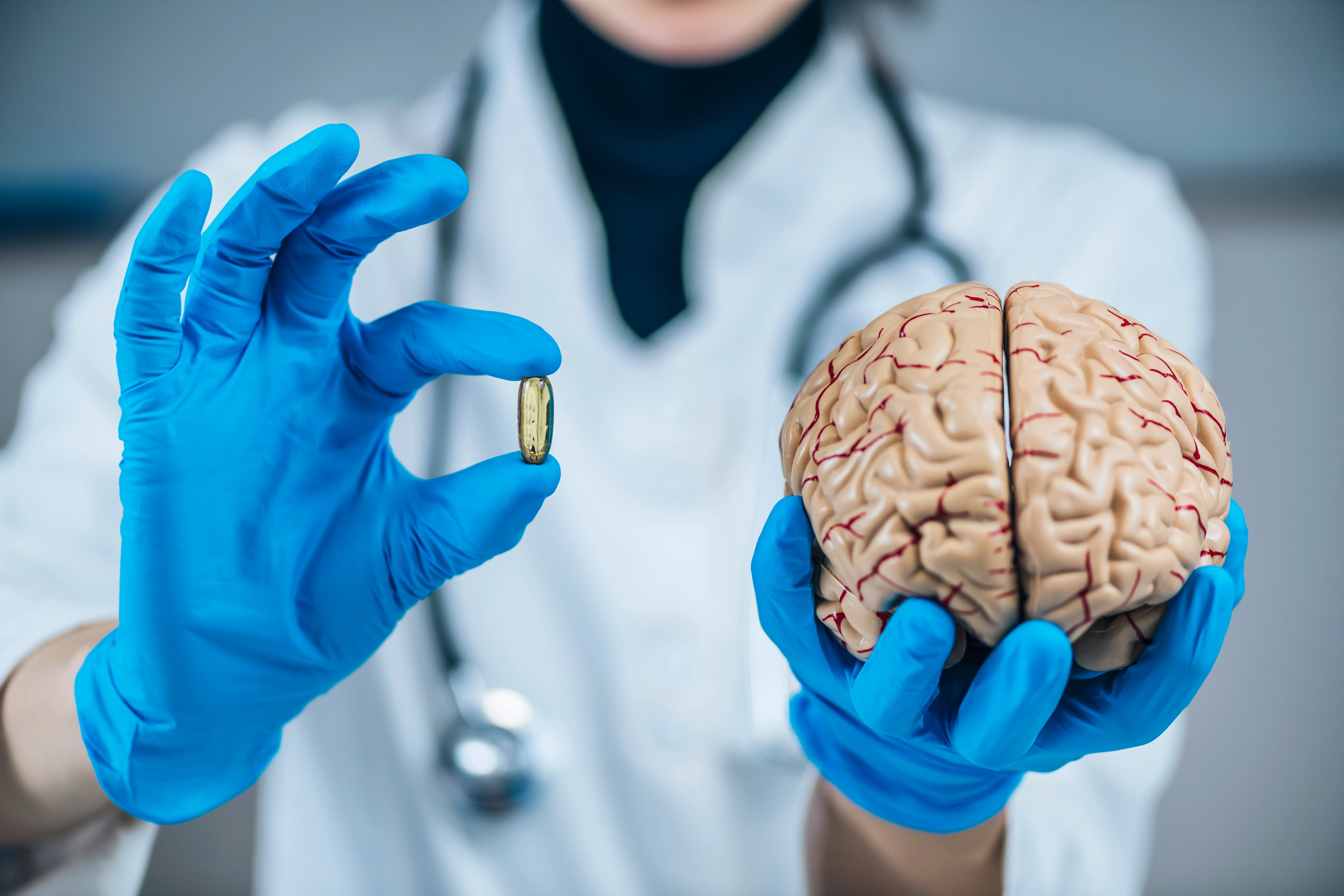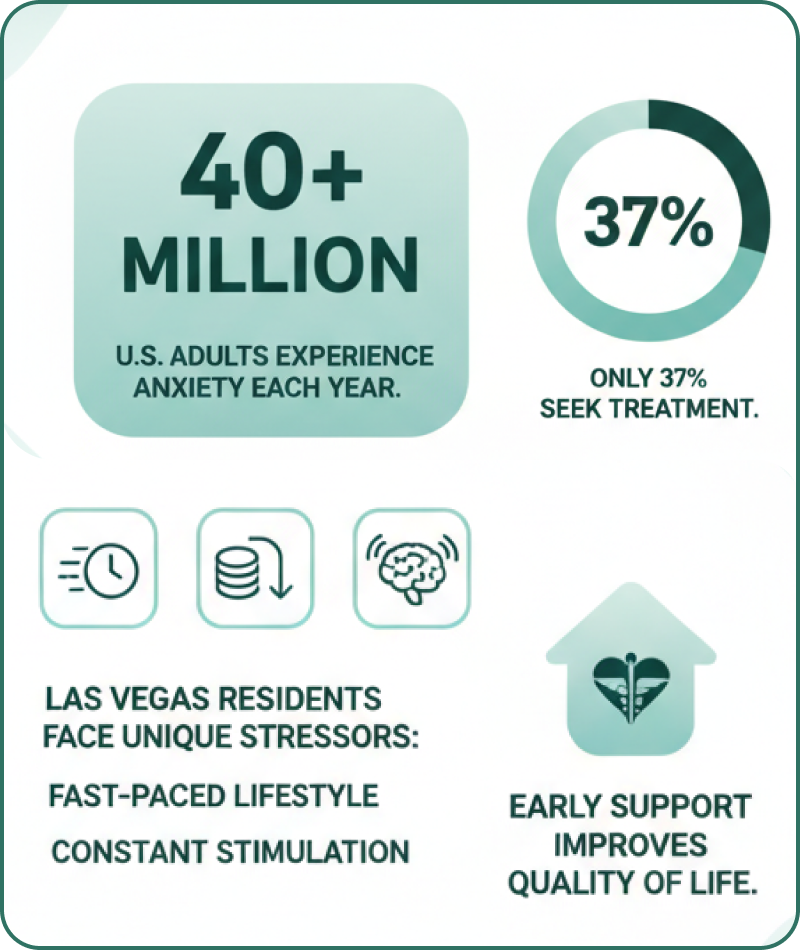In the vicinity of Las Vegas, where the pace of life can be intense, accessing effective support for Post Traumatic Stress Disorder (PTSD) is vital. The Halo Health Clinic, situated near Las Vegas, provides a sanctuary for those coping with PTSD. Renowned for its empathetic and specialized care, the clinic offers a comprehensive range of services tailored to address the unique challenges of PTSD. With a team of experienced professionals, the clinic employs a variety of therapeutic approaches, including trauma-informed therapy, cognitive-behavioral therapy, and mindfulness practices. The Halo Health Clinic is committed to aiding individuals in the Las Vegas area to overcome the impacts of traumatic experiences, facilitating a journey towards healing and resilience.

What is PTSD?
Post Traumatic Stress Disorder (PTSD) is a mental health condition that arises after an individual has gone through a traumatic experience. This experience can range from a single distressing event to prolonged or repeated exposure to life-threatening or emotionally devastating situations. The core characteristic of PTSD is the intense psychological distress and physical reactivity symptoms that occur in response to stimuli reminiscent of the trauma. These reactivity symptoms can include heightened vigilance, an exaggerated startle response, irritability, and difficulty concentrating. They significantly impact an individual's daily life, often hindering their ability to function normally in social or work environments.

Recognizing PTSD Symptoms: More Than Just Memories
PTSD symptoms often include flashbacks, nightmares, severe anxiety, and uncontrollable thoughts about the traumatic event. However, it's important to understand that PTSD affects more than just memory. It often includes mood symptoms like persistent negative emotions and diminished interest in previously enjoyed activities.

The Impact of Traumatic Events on Mental Health
Traumatic events that can lead to PTSD encompass a wide range, including military combat, natural disasters, serious accidents, and sexual assault. The impact of these events on an individual's mental health can be profound and long-lasting, necessitating the need for effective mental health services.

Mental Health Services Administration's Role in PTSD Care
The Mental Health Services Administration plays a crucial role in providing resources and support for those suffering from PTSD. This includes access to mental health professionals trained in the diagnosis and treatment of this disorder.

Risk Factors for Developing PTSD
Not everyone who experiences a traumatic event will develop PTSD. Certain risk factors, such as previous traumatic exposure, existing mental health issues, or lack of support, can increase the likelihood of developing post traumatic stress.

Seeking Help: The Role of Mental Health Professionals
Consulting a licensed mental health professional is crucial for anyone struggling with PTSD. These experts can diagnose the condition and provide appropriate treatment, which may include talk therapy, medication, or a combination of both.

Talk Therapy and Traumatic Event Avoidance Symptoms
Talk therapy, an effective treatment for PTSD, helps individuals process the traumatic event and develop coping strategies. It can be particularly helpful in addressing traumatic event avoidance symptoms, where individuals may go to great lengths to avoid reminders of the trauma.

The Journey Toward Positive Emotions: Overcoming PTSD
Recovery from PTSD is a gradual process, and it involves learning to cope with the memories and feelings related to the traumatic event. Mental health services can play a vital role in this journey, helping individuals rediscover positive emotions and regain a sense of control.\

Psychotherapy for PTSD
Cognitive Behavioral Therapy (CBT)
CBT is one of the most effective forms of psychotherapy for PTSD. It involves identifying and changing negative thought patterns and behaviors associated with the traumatic event. CBT often includes techniques like cognitive restructuring to challenge harmful beliefs and exposure therapy to gradually reduce fear and avoidance behaviors.
Prolonged Exposure Therapy
A specific type of CBT, prolonged exposure therapy helps individuals confront their trauma-related memories and feelings. By repeatedly discussing the traumatic event and confronting trauma reminders in a controlled setting, patients learn to decrease their anxiety and emotional distress.
Eye Movement Desensitization and Reprocessing (EMDR)
EMDR involves the patient focusing on trauma-related imagery, thoughts, and emotions while simultaneously experiencing bilateral stimulation (typically eye movements). This process is thought to aid in the processing and integration of traumatic memories.
Group Therapy
Group therapy provides a supportive environment where individuals can share experiences and coping strategies. It helps in normalizing PTSD symptoms and provides a sense of community and understanding among individuals with similar experiences.

Medication for PTSD
Antidepressants
SSRIs (selective serotonin reuptake inhibitors) and SNRIs (serotonin-norepinephrine reuptake inhibitors) are commonly prescribed for PTSD. These medications can help alleviate symptoms such as sadness, worry, anger, and feelings of numbness.
Prazosin
Often used for nightmares and sleep disturbances associated with PTSD, Prazosin can help reduce the severity of these symptoms.
Other Medications
Depending on individual symptoms and comorbid conditions, other medications like mood stabilizers or antipsychotics may be prescribed.

Alternative Therapies for PTSD
Mindfulness and Stress Reduction Techniques
Practices like meditation, yoga, and deep breathing can help manage stress and improve overall emotional well-being.
Acupuncture
Some individuals find relief in acupuncture, which is thought to help in balancing the body's energies and could potentially alleviate some symptoms of PTSD.
Animal-Assisted Therapy
Interaction with animals, such as dogs or horses, has been found to provide comfort and reduce anxiety and stress in some individuals with PTSD.
Virtual Reality (VR) Therapy
Emerging as a tool in exposure therapy, VR technology can recreate environments related to the traumatic event in a controlled manner, helping patients confront and process their trauma.

Post Traumatic Stress Disorder (PTSD) Statistics in Las Vegas
Post-Traumatic Stress Disorder (PTSD) is a mental health condition that affects approximately 6% of adults in the United States at some point in their lives, including a significant number of individuals in Las Vegas. In 2023, studies revealed that PTSD is particularly common among those who have experienced traumatic events such as violence, accidents, or natural disasters, with urban areas like Las Vegas often seeing higher rates due to the city’s population density and transient nature. Symptoms of PTSD include flashbacks, nightmares, severe anxiety, and emotional numbness, all of which can significantly disrupt daily life and relationships, making access to effective care crucial for affected individuals.
In Las Vegas, treatment options for PTSD, such as cognitive-behavioral therapy (CBT), eye movement desensitization and reprocessing (EMDR), and medication, are becoming increasingly accessible. Despite this progress, stigma and lack of awareness still prevent many residents from seeking help. Community outreach programs and teletherapy services are playing a vital role in reducing barriers to treatment and fostering understanding of PTSD. By expanding mental health resources and support systems, Las Vegas can provide individuals with PTSD the tools they need to manage their symptoms and improve their quality of life.

Hope and Healing in the Face of Trauma
PTSD is a challenging but treatable disorder. With the support of mental health professionals, individuals can embark on a path to recovery, overcoming the effects of traumatic stress disorder and moving towards a future filled with hope and positive experiences.
If you or anyone you know is struggling with PTSD in Las Vegas, contact Halo Health Clinic today! (702) 718-7353



.avif)
.svg)
.svg)
.svg)
.svg)
.avif)
.svg)
.svg)
.svg)
.svg)
.svg)
.svg)
.avif)

.svg)
